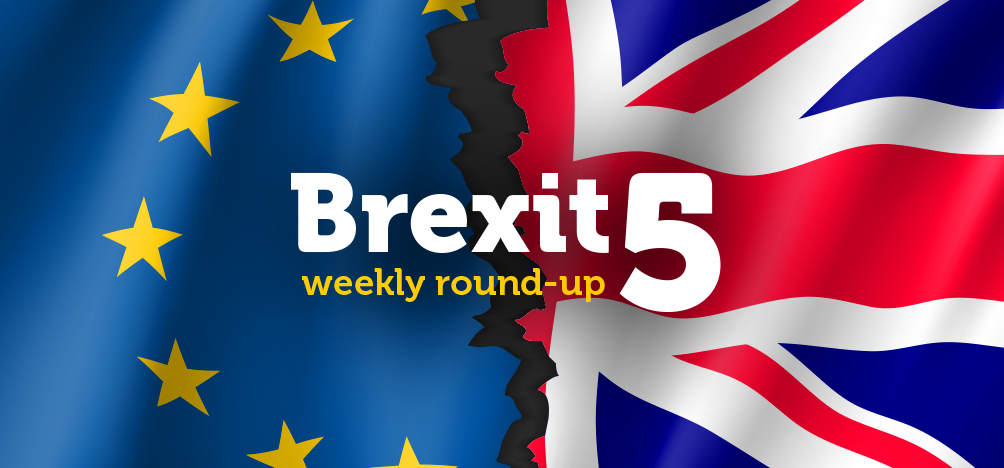TIG for tat
After much hearsay and speculation, the Westminster equivalent of a boyband break-up came into fruition as the ‘Centrist Seven’ finally took to the stage to announce their split from Jeremy Corbyn’s Labour Party. While the seven MPs have been vocal critics of the Labour leadership since Corbyn took the job in 2015, their reasons for walking have differed. From the emboldening of anti-Semitism in the Party and Corbyn, a life-long Eurosceptic, perceived to have not put enough effort into the Remain campaign during the 2016 referendum, all are united in their collective horror at seeing a once proud Labour Party now run off a cliff-edge by the hard left.
Since then, the momentum continued with four more MPs ditching their party colours and signing up to be a ‘Tigger’, including three Conservatives: Anna Soubry, Heidi Allen and Dr Sarah Wollaston and a further Labour defector, Joan Ryan. Early on Friday morning, Ian Austin also decided to ditch Labour due to the prevalence of bullying and anti-Semitic abuse, however has ruled out joining the fledgling group of Independents – for now.
It is believed that the eleven MPs will continue to represent their current constituencies until the next general election, whenever that may be, at which point they have indicated that they will target marginal constituencies.
With data harvesting, racist remarks, U-turns and botched interviews all occurring in their first week, The Independent Group are now tasked with establishing what exactly it is they stand for, what they want to achieve, and whether historical party politics can be put aside to #ChangePolitics which they brazenly believe they can do.
Farming for Votes
Michael Gove, Secretary of State for Environment, Food and Rural Affairs, and self-appointed Champion of Farmers, has said that Britain will impose tariffs and quotas on agricultural products to protect UK farmers in the event of a no deal Brexit.
Speaking at the National Farmers’ Union annual conference, Gove announced that he would introduce the policies to protect UK farmers in the event of a no-deal Brexit. And, contrary to claims by hard Brexiteers, he warned that delays were likely in Calais because of mandatory EU checks on food imports on the French side of the channel.
UK farmers have long-feared that opening the market to agricultural powerhouses, such as Australia and New Zealand under new World Trade Organisation rules, would decimate the UK industry. In his speech he highlighted the NFU had called for tariffs on lamb, beef, poultry, dairy, both milks and cheese, and pig meat to prevent this from happening.
He refused to reassure farmers who pressed him about protection for cereal farmers, suggesting zero tariffs could be possible. Gove urged farmers to lobby their MPs to vote for Theresa May’s deal and said the clear priority was to secure a deal.
European President, Jean-Claude Juncker, doubled down on the EU’s refusal to make changes to the PM’s deal and said it will impose the full external tariff of 40% on all food from the UK in the event of a no-deal Brexit. Mrs May is expected to request legally-binding assurances that the backstop will not extend indefinitely, in the hope that those changes will get her over the line. She has promised to return to Parliament to update MPs again on the 26th February and, given the landslide rejection of her Brexit plan previously and the possibility of ‘No Deal’ looming, her options are quickly running out.
No, I’m leaving!
Across the Parliamentary Estate it would seem that ‘Resignation is The New Black’, as Theresa May faces further trouble from her Cabinet unless No Deal is categorically ruled out.
Whether it’s the cancelling of recess that has set the tone for the week, it would be the most serious Cabinet revolt of her tenure, with a whopping twenty-five members of Government making it clear that they are ready to go, or vote to delay Brexit, if Mrs May doesn’t concede.
Some Conservatives now believe there are now enough MPs across the House of Commons to pass an amendment that would require May to extend Article 50 rather than letting the UK leave without a deal.
At least four Cabinet Ministers and a dozen Ministers are said to be prepared to back the motion proposed by Tory MP Sir Oliver Letwin and Labour’s Yvette Cooper, which will be debated on Wednesday.
In a private meeting, Cabinet Ministers told the Prime Minister that she would have to delay Brexit if there was no Commons majority for her deal by the 27th February.
Mrs May has already lived through two rounds of major resignations during her rocky time as PM, but a wave of sackings and resignations would send the Government hurtling into another crisis at this crucial stage. To avoid this crisis, Mrs May is racing to secure changes to her politically unpopular withdrawal deal which will satisfy the hardline Eurosceptics in her party and the DUP, enabling Parliament to then approve it. What is certain is that no one can really predict what will happen and there is little clarity on what lies ahead.
#DespiteBrexit
This week, a report by the Institute for Government stated that the UK isn’t ready for the prospect of leaving the EU without a deal in a month’s time. The Government has pointed out that, by the end of this year, it will have spent more than £4bn preparing for Brexit. The report says, despite this, the UK would be unable to avoid serious disruption in most areas.
While the cloud of No Deal hangs over the UK, it’s not all bad news as the Office for National Statistics published new labour market data this week which showed that, in the final quarter of last year, real wages rose, employment surged and unemployment plummeted.
In fact, 167,000 more people found a new job in that time and the UK’s overall employment rate now stands as the joint-highest since records began. The unemployment rate has dropped by 100,000 over the course of the year, meaning that 274 people landed themselves a new job each day in 2018. With reports of grounded planes, unlicensed medicine and nuclear waste piling up in your back garden, real wages rising once again hardly supports the over-blown predictions floating around, should the UK leave without a deal.
Are EU having a laugh?
It was tipped to be one of the most important EU trade deals the UK hoped to replicate, but Trade Secretary Liam Fox has dropped the bombshell that the UK would be unable to roll over a trade deal with Japan by the Brexit deadline. The Department also rubbed salt into the wound by saying it would not be able to roll over the EU’s customs deal with Turkey on time either. A stretch away from the ’40 free trade deals by Brexit day’ promise made in 2017.
So far, the Department has only been able to bag ‘continuity agreements’ with just seven of the sixty-nine countries with which the EU currently now has trade deals. These include Switzerland, Chile, the Faroe Islands, Eastern and Southern Africa, Israel and the Palestinian Authority. The UK also has mutual recognition agreements signed with the US, Australia and New Zealand.
Labour MP Stephen Doughty said: “Brexiteers promised that voting Leave would mean a bonanza of new international trade deals. Instead, Brexit is costing us the global trade deals we already have as EU members. Liam Fox is now finally admitting that his promise to roll over all existing EU trade deals in time for Brexit is going to be broken.”
British exports to Japan are worth £9.9bn a year under the current EU trade deal, with reduced tariffs on goods and enhanced access to markets. However, there is no reason to suggest the UK can’t achieve the same or a better trade deal. The question isn’t if, but when, and how long after the March 29th deadline it will be.

